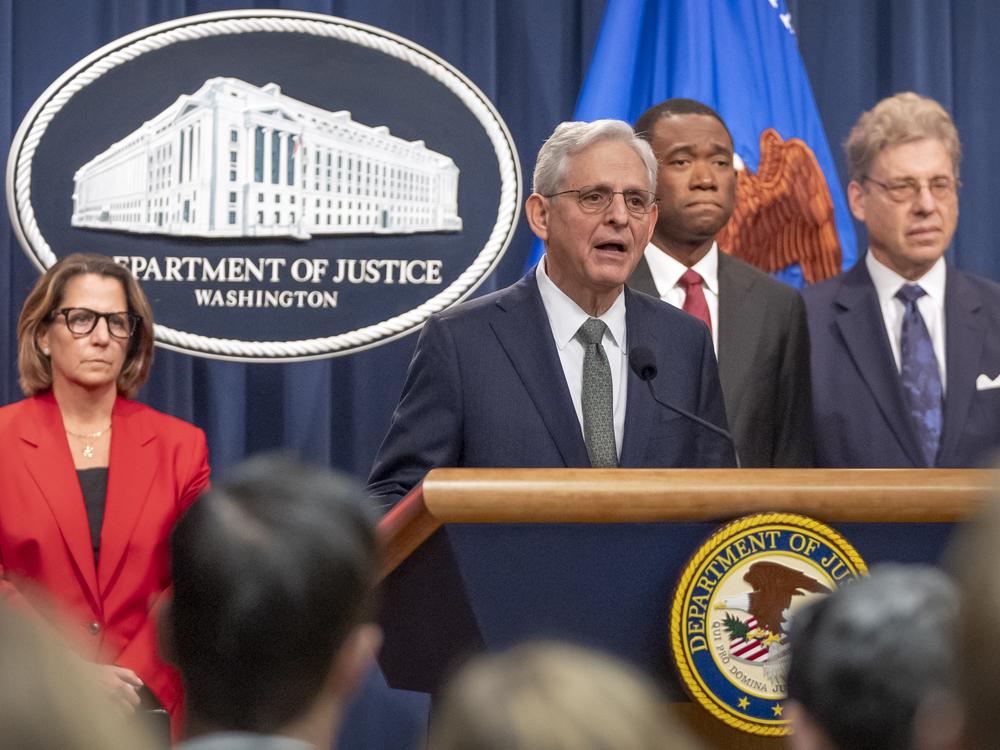Section Branding
Header Content
TD Bank to pay $3 billion in money-laundering settlement with the Justice Department
Primary Content
WASHINGTON — TD Bank will pay approximately $3 billion in a historic settlement with U.S. authorities who said Thursday that the financial institution's lax practices allowed significant money laundering over multiple years.
Canada-based TD Bank pleaded guilty to conspiracy to commit money laundering, the largest bank in U.S. history to do so, Attorney General Merrick Garland said.
“TD Bank created an environment that allowed financial crime to flourish," Garland said. “By making its services convenient for criminals, it became one.”
High-level executives were alerted to serious problems with the bank’s anti-money laundering program, but failed to correct them as employees openly joked about how easy it seemed to be for criminals to launder money there, Garland said.
The bank is the 10th largest in the United States, and its CEO said the company takes full responsibility and has been cooperating with the investigation. It's been taking steps to fix its U.S. anti-money laundering program, including appointing new leadership and adding hundreds of new specialists, said TD Bank Group CEO Bharat Masrani.
“We know what the issues are, we are fixing them. As we move forward, we’re ensuring that this never happens again,” Masrani said. “And I’m 100% confident that we get to the other side and emerge even stronger.”
The Justice Department said the bank allowed at least three different money laundering networks to move a total of $670 million through TD Bank accounts over a period of several years.
The institution became the bank of choice for multiple criminals and money laundering organizations, authorities said.
“From fentanyl and narcotics trafficking, to terrorist financing and human trafficking, TD Bank’s chronic failures provided fertile ground for a host of illicit activity to penetrate our financial system,” said Deputy Secretary of the Treasury Wally Adeyemo.
In one case, a man moved more than $470 million in drug proceeds and other illicit funds through TD Bank branches, bribing employees with more than $57,000 in gift cards.
He chose TD Bank because it had the “most permissive policies,” more than once depositing more than $1 million in cash in a single day and then moving the funds out of the bank with checks or wire transfers, Garland said. It continued despite employees expressing concern about what he was doing.
There were also piles of cash dumped on a bank’s counters and ATM withdrawals that totaled 40 times to 50 times higher than the daily limits, said Philip Sellinger, U.S. attorney in New Jersey.
In a separate scheme, five employees worked with criminal organizations to open and maintain accounts that were used to launder $39 million to Colombia, including drug proceeds, Garland said.
There were also multiple red flags in that case, including that the same Venezuelan passports were used to open multiple accounts, but the bank did not identify the problem until one of the employees was arrested.
In a third scheme, a money laundering network had accounts for at least five shell companies that moved more than $100 million in illicit funds, but the bank did not file a required suspicious activity report until law enforcement alerted it.
The bank's “long-term, pervasive, and systemic deficiencies” in its policies over a period of nine years allowed such abuses to flourish, prosecutors said.
Two dozen people have been prosecuted for involvement in money-laundering schemes, including two TD Bank employees, Garland said. The investigation is ongoing.
The bank has also agreed to major restructuring of the corporate compliance program in its U.S. operations, as well as three years of monitoring and five years of probation.

